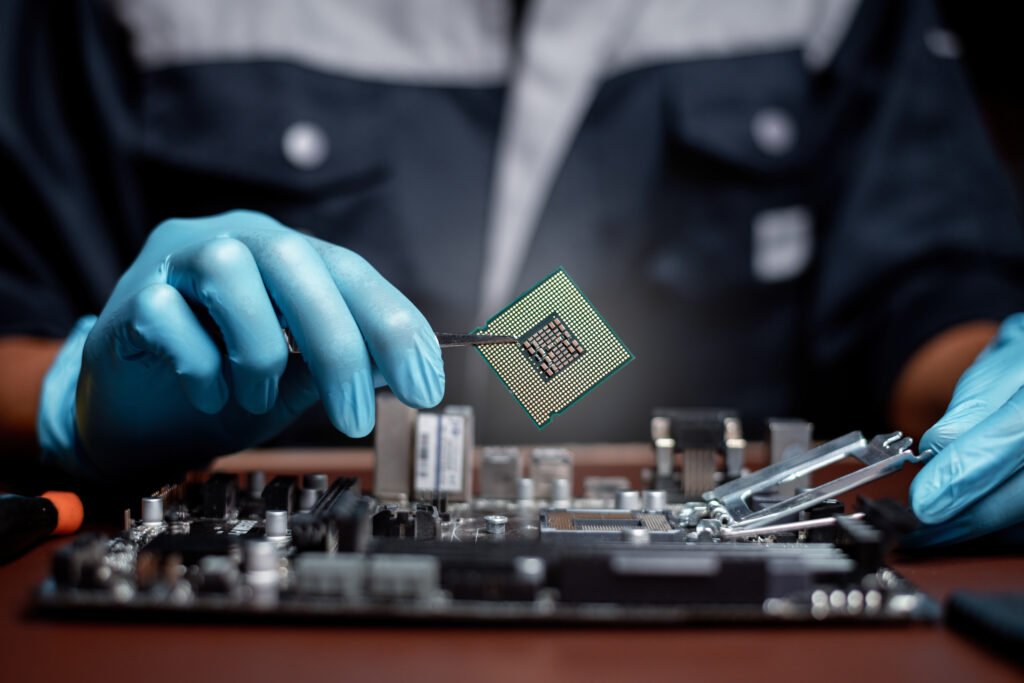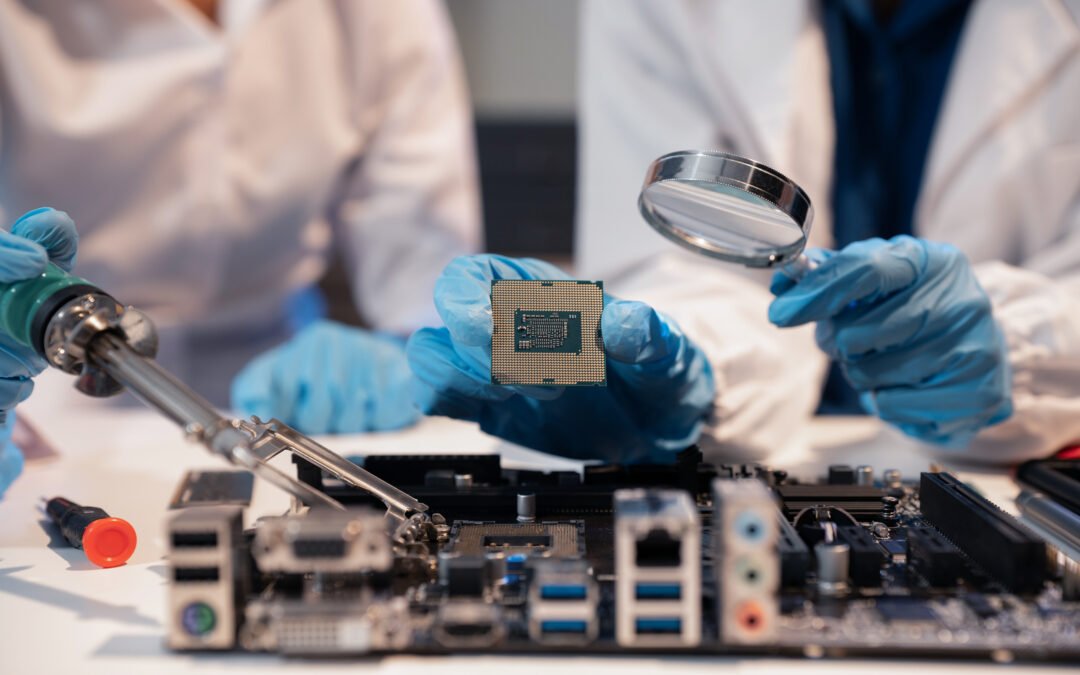Are you ready to step into the most transformative era in semiconductor engineering history? The year 2025 marks a pivotal moment where cutting-edge technologies converge to create unprecedented career opportunities.
The semiconductor industry stands at the threshold of revolutionary changes that will reshape how we design, manufacture, and deploy advanced chips across every sector of the economy. This transformation brings both exciting possibilities and critical challenges that will define the next decade of technological progress.
Revolutionary Technologies Reshaping the Industry
The semiconductor landscape in 2025 is driven by several groundbreaking technological shifts that are creating entirely new career pathways. Photonics solutions are transitioning from experimental concepts to mainstream applications, fundamentally changing how data moves through systems. Semiconductor Engineering reports that photonics integration will drive significant investments and hiring across the industry, creating specialized roles in optical device design and system integration.
Key technological drivers include:
- 3D-IC and Advanced Packaging Technologies: Multi-layered chip architectures require engineers skilled in thermal management, power delivery, and mechanical design integration.
- Chiplet Ecosystem Development: Disaggregated system-on-chip designs create new opportunities for CPU subsystem engineers, connectivity specialists, and GPU processing experts.
- AI-Driven Design Tools: Machine learning integration in electronic design automation demands professionals who can bridge artificial intelligence with traditional chip design workflows.
- Quantum Computing Hardware: Scaling from thousand-qubit systems toward 10,000-qubit architectures opens entirely new engineering disciplines.
The convergence of these technologies creates a unique environment where fundamental physics knowledge becomes as crucial as software expertise. Modern semiconductor professionals must master electro-thermal co-simulation, multi-physics modeling, and real-time design methodologies to succeed in this evolving landscape. Providence Partners specializes in connecting talented professionals with these emerging opportunities through our next-gen hardware specialists recruitment services.

Explosive Growth in Job Market Opportunities
The semiconductor job market presents remarkable growth potential, with industry projections indicating massive expansion across all skill levels. McKinsey & Company forecasts over 160,000 new engineering and technician positions by 2032, driven by $250 billion in public and private investments. This growth translates to approximately 88,000 semiconductor engineering jobs and 75,000 technician roles by 2029.
Current market dynamics reveal significant opportunities:
- Entry-Level Positions: Despite industry concerns about reduced entry-level semiconductor jobs, specific niches show strong demand for new graduates with relevant technical skills.
- Specialized Technical Roles: Advanced packaging engineers, photonics specialists, and AI-integration experts command premium salaries due to talent scarcity.
- Manufacturing Support: Equipment technicians, module operators, and process engineers benefit from reshoring initiatives and new fabrication facilities.
- Design Engineering: Verification engineers, analog designers, and system architects remain in high demand as chip complexity increases.
The talent gap creates unique advantages for professionals entering the field. With only 1,500 engineers joining the semiconductor industry annually versus demand projections exceeding 20,000 by 2027, qualified candidates enjoy exceptional leverage in negotiations and career advancement opportunities. For professionals seeking these opportunities in Texas, our Austin and DFW location services provide targeted regional expertise.
Essential Skills for 2025 Success
Modern semiconductor engineering demands a sophisticated blend of traditional engineering fundamentals and emerging technology expertise. The industry shift toward heterogeneous integration and advanced packaging requires professionals who understand both device physics and system-level design principles. Semiconductor Engineering emphasizes that “this period of advancement truly unique is the need to focus on physics and real design skills.”
Critical skill areas include:
- Multi-Physics Simulation: Expertise in power, thermal, mechanical, and optical co-simulation for complex 3D-IC architectures.
- AI and Machine Learning Integration: Ability to embed intelligent algorithms into design flows, verification processes, and manufacturing optimization.
- Advanced Materials Knowledge: Understanding of gallium nitride, silicon carbide, and compound semiconductors for power electronics applications.
- Photonics Design: Silicon photonics integration, optical link design, and high-speed optical communication systems.
- Hardware Security: Cryptographic implementation, secure boot processes, and attack-resistant design methodologies.
- Data Management: Skills in handling proprietary datasets, ensuring data sovereignty, and managing AI training pipelines.
The emphasis on fundamental physics reflects the industry’s movement toward novel device architectures where traditional design rules no longer apply. Engineers must understand quantum effects, thermal dynamics, and electromagnetic interactions at unprecedented scales. Providence Partners offers comprehensive engineering talent excellence services to help professionals develop these critical competencies.
Career Pathways and Professional Development
The semiconductor industry offers diverse career trajectories that span from hands-on technical roles to strategic leadership positions. Entry-level semiconductor jobs provide excellent starting points for recent graduates, particularly in verification engineering, layout design, and test engineering. These positions offer comprehensive training programs and mentorship opportunities that accelerate professional growth.
Career advancement pathways include:
- Technical Leadership: Principal engineers, distinguished engineers, and chief technology officers who drive innovation strategies.
- Product Management: Professionals who translate technical capabilities into market-ready solutions and business strategies.
- Systems Architecture: Engineers who design complete solutions spanning hardware, software, and firmware integration.
- Manufacturing Excellence: Process engineers, yield improvement specialists, and production optimization experts.
- Business Development: Technical sales engineers, field application engineers, and strategic partnership managers.
The industry’s rapid evolution creates opportunities for professionals to specialize in niche areas that become mainstream technologies. Early adoption of emerging skills like photonics design or quantum hardware engineering positions individuals for leadership roles as these technologies mature. Our IT recruitment and AI-ML talent acquisition services connect professionals with industry leaders driving these innovations.
Building Your Semiconductor Engineering Future
Success in the evolving semiconductor landscape requires proactive skill development and strategic career planning. The industry’s shift toward AI-driven design tools, advanced packaging, and heterogeneous integration demands continuous learning and adaptation. Professionals must balance deep technical expertise with broad system-level understanding to remain competitive in semiconductor engineering jobs.
Professional development strategies include pursuing advanced certifications in specialized areas, participating in industry conferences, and engaging with cutting-edge research projects. The semiconductor market rewards professionals who demonstrate both technical excellence and innovative thinking.
Providence Partners provides comprehensive recruitment services that match skilled professionals with opportunities in Texas’s thriving semiconductor ecosystem. Our deep industry connections and technical expertise ensure candidates access roles that align with long-term career objectives. Whether you’re seeking entry-level semiconductor jobs or senior leadership positions, our team understands the unique demands of this rapidly evolving field.
The future belongs to semiconductor professionals who embrace change, master emerging technologies, and contribute to solutions that power the next generation of computing, communications, and artificial intelligence systems. The opportunities are vast, the challenges are stimulating, and the potential for impact is unprecedented. Connect with our team today to explore how we can accelerate your semiconductor engineering career in 2025 and beyond.




Recent Comments